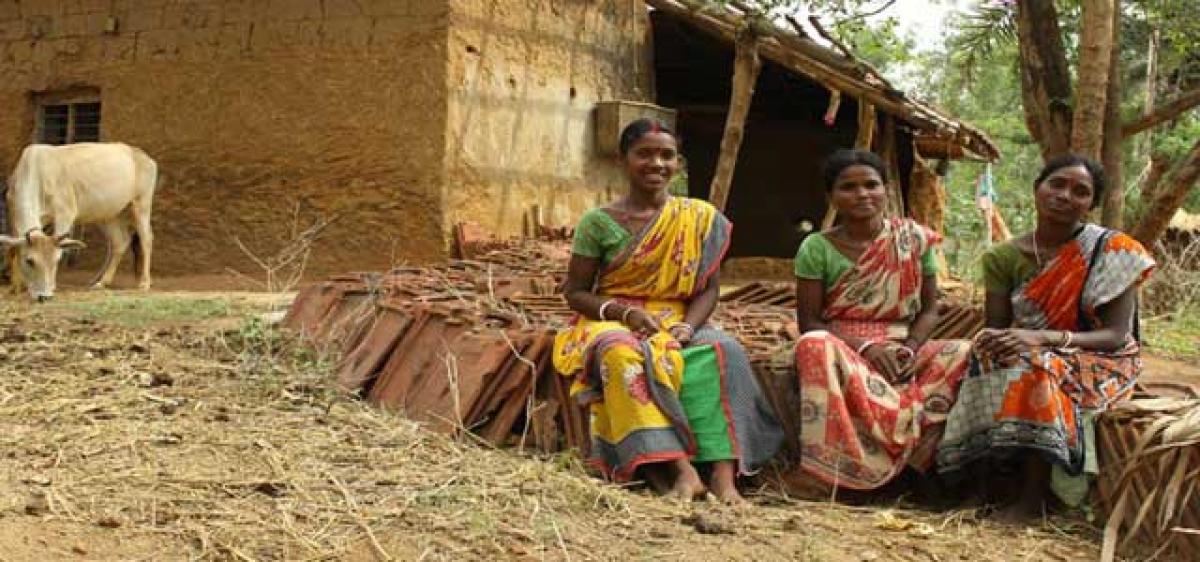Live
- CM discusses modalities with Union ministers
- Civic body to give boost to SHG group products
- Union Bank of India celebrates foundation day
- Thanks to Centre, AP on fast-track mode
- First Impressions and Unboxing of the MacBook Pro M4: A Powerhouse for Professionals and Creators
- China Gears Up for Potential Trade War Amid Trump’s Tariff Threats
- Small Farmers Gain Less by Selling to Supermarkets: Study Reveals
- Why Despite the Controversy, America Is Anticipating the Mike Tyson vs. Jake Paul Fight
- Sanju Samson and Tilak Varma Shine: Record-Breaking Feats in 4th T20I Against South Africa
- India Urges $1.3 Trillion Annual Climate Support for Developing Nations
Just In

Even as the NITI Aayog has said India does not have necessary financial resources for the project, the government\'s Economic Survey 2016-17 advocated a Universal Basic Income (UBI) scheme as an alternative poverty reduction mechanism in place of various ongoing social welfare programmes. UBI guarantees a minimum income to every citizen.
Even as the NITI Aayog has said India does not have necessary financial resources for the project, the government's Economic Survey 2016-17 advocated a Universal Basic Income (UBI) scheme as an alternative poverty reduction mechanism in place of various ongoing social welfare programmes. UBI guarantees a minimum income to every citizen.
The Economic Survey, authored by Chief Economic Advisor Arvind Subramanian and tabled in Parliament on the first day of the Budget Session on Tuesday, pitched for a scheme to transfer a reasonable basic income to Indians below the poverty line based on a survey on misallocation of resources which showed that districts where needs are the greatest are precisely those where state capacity is the weakest.
HIGHLIGHTS:
- GDP growth for next fiscal pegged at 6.75-7.5%
- Growth this fiscal to be 6.5%
- Prescribes cut in individual I-T rates & real estate stamp duties
- Income Tax net could be widened gradually
- Time table for cutting corporate tax should be accelerated
- Growth to return to normal as new currency comes in circulation
- Demonetisation to affect growth rate by 0.25-0.5%
- GST, other reforms should take growth rate to 8-10%
- Farm sector to grow at 4.1%this fiscal, up from 1.2% last year
The survey's findings suggest that a more efficient way to help the poor would be to provide them resources directly, through the proposed UBI scheme.
Elaborating on the UBI scheme, Subramanian has earlier said it would entail making an unconditional cash transfer of about Rs 10,000-Rs 15,000 a year to every citizen and could replace more than 1,000 schemes the government runs for poverty elimination.
The Economic Survey said the two prerequisites for a successful UBI are a functional JAM (Jan Dhan, Aadhaar and Mobile) system to ensure that the cash transfer goes directly into the account of a beneficiary, and Centre-State negotiations on sharing the programme's cost.
Fiscally unaffordable
It is important to note here that NITI Aayog Vice-Chairman Arvind Panagariya’s opinion on this in a recent interview: “India lacks the fiscal resources for a UBI benchmarked to the poverty line.”
"At the current level of income and our needs for investment in health, education, infrastructure and defence, we simply do not have the necessary fiscal resources to transfer a reasonable basic income to 130 crore Indians," Panagariya said.
However, the survey also said the UBI is a conceptually appealing idea but with a number of implementation challenges lying ahead especially the risk that it would become an add-on to, rather than a replacement of, current anti-poverty and social programmes, which would make it fiscally unaffordable.
There has been speculation about the Finance Minister announcing a UBI-like scheme in some form in his budget, after the Jammu and Kashmir government became the first state government to commit to the UBI for all citizens living below the poverty line.
Short-term costs, long-term benefits
The Economic Survey pointed out that the demonetisation will have both short-term costs and long-term benefits.
“Briefly, the costs include a contraction in cash supply and subsequent, albeit temporary, slowdown in GDP growth; and benefits include increased digitalization, greater tax compliance and a reduction in real estate prices, which could increase long-run tax revenue collections and GDP growth,” it said.

© 2024 Hyderabad Media House Limited/The Hans India. All rights reserved. Powered by hocalwire.com







